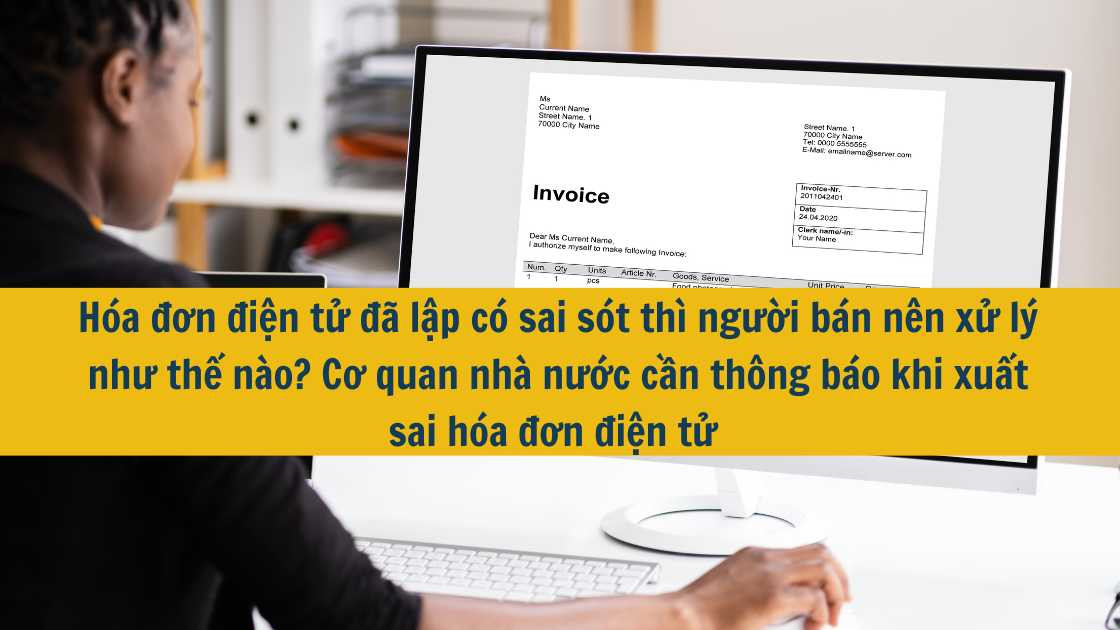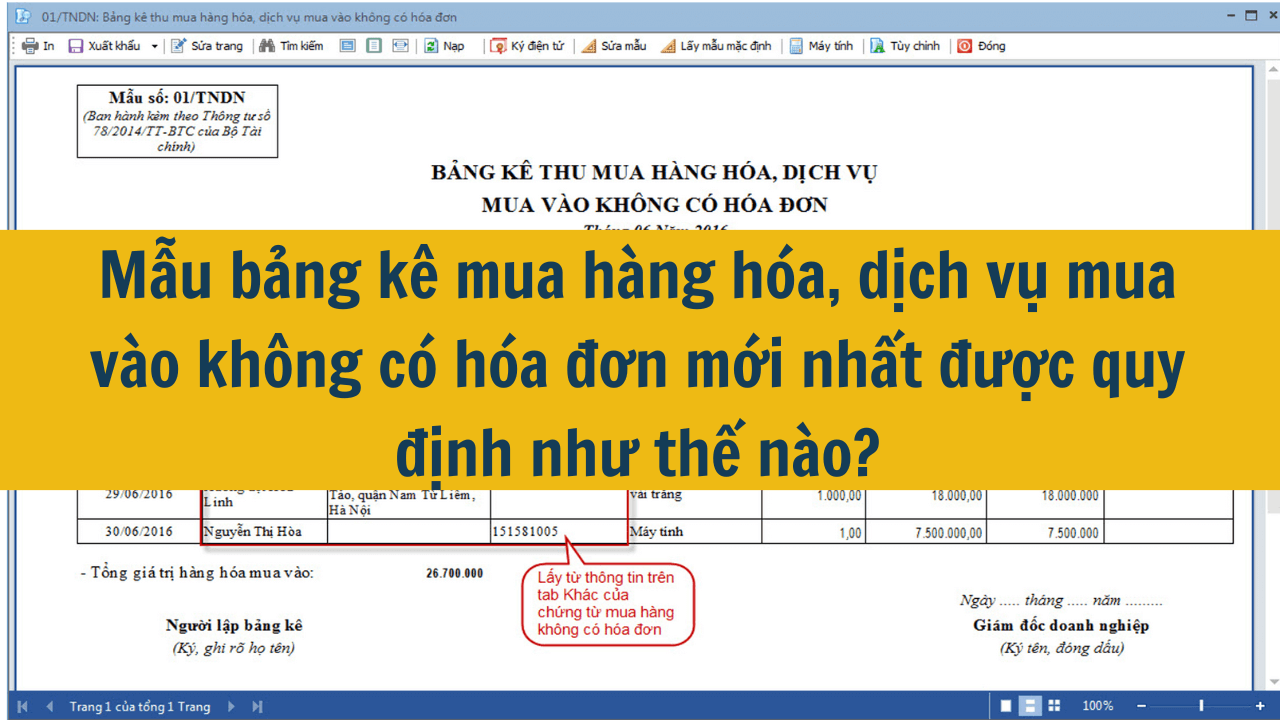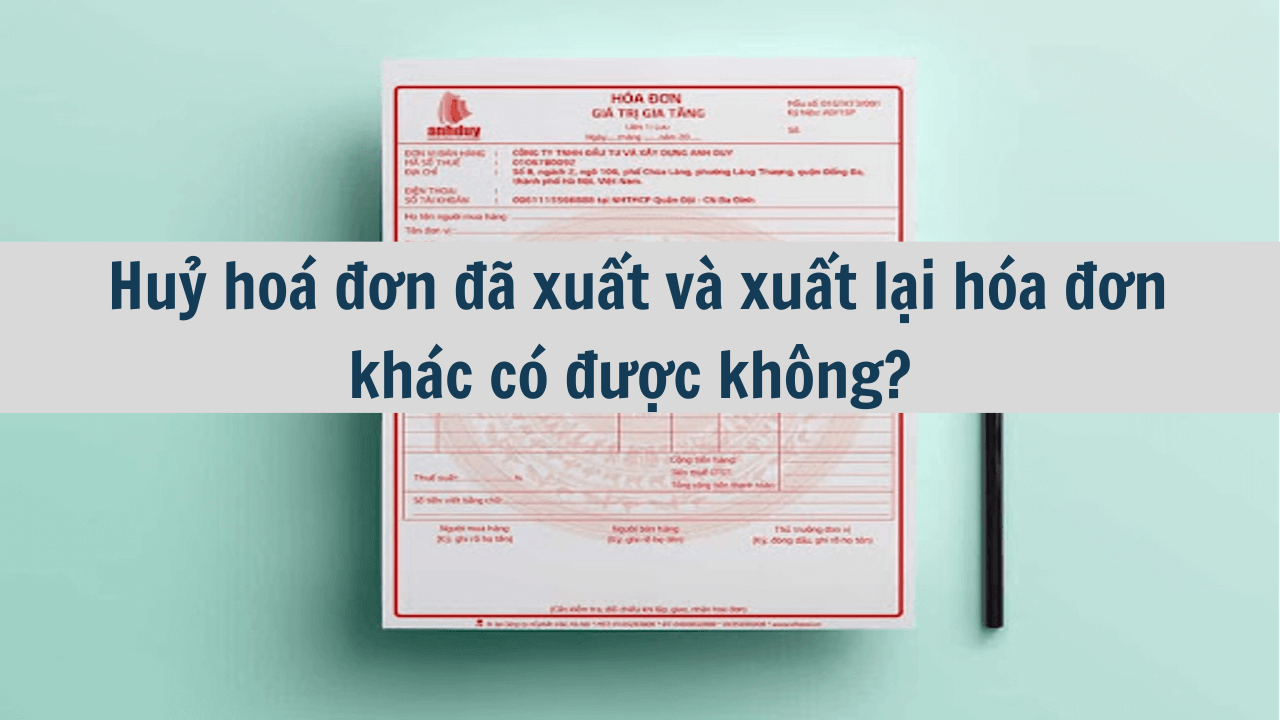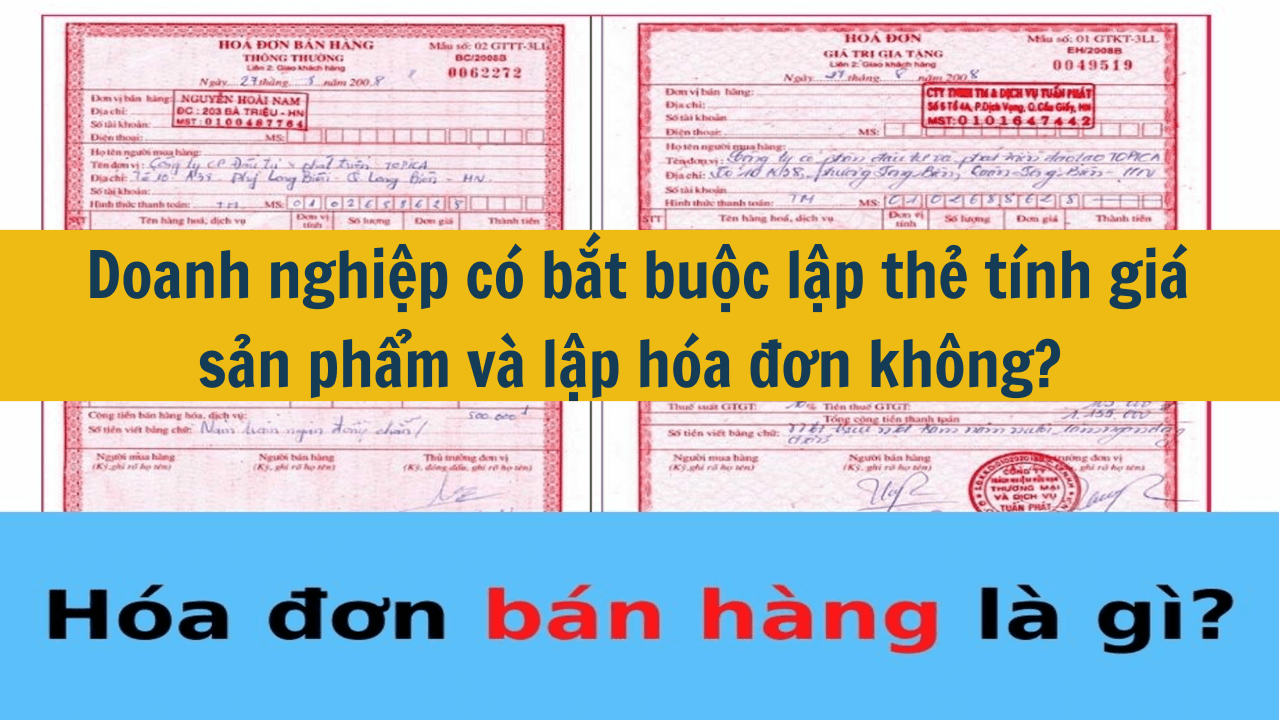 Tìm kiếm
Tìm kiếm
Chương I Nghị định 123/2020/NĐ-CP: Những quy định chung
| Số hiệu: | 123/2020/NĐ-CP | Loại văn bản: | Nghị định |
| Nơi ban hành: | Chính phủ | Người ký: | Nguyễn Xuân Phúc |
| Ngày ban hành: | 19/10/2020 | Ngày hiệu lực: | 01/07/2022 |
| Ngày công báo: | 01/11/2020 | Số công báo: | Từ số 1011 đến số 1012 |
| Lĩnh vực: | Kế toán - Kiểm toán | Tình trạng: | Còn hiệu lực |
TÓM TẮT VĂN BẢN
Không bắt buộc sử dụng hoá đơn điện tử từ ngày 01/11/2020
Đây là nội dung đáng chú ý tại Nghị định 123/2020/NĐ-CP quy định về hoá đơn, chứng từ có hiệu lực từ ngày 01/7/2022.
Cụ thể, bãi bỏ khoản 2 và khoản 4 Điều 35 Nghị định 119/2018/NĐ-CP quy định về hoá đơn điện tử như sau:
“2. Việc tổ chức thực hiện hóa đơn điện tử, hóa đơn điện tử có mã của cơ quan thuế theo quy định của Nghị định này thực hiện xong đối với các doanh nghiệp, tổ chức kinh tế, tổ chức khác, hộ, cá nhân kinh doanh chậm nhất là ngày 01 tháng 11 năm 2020.”
“4. Kể từ ngày 01 tháng 11 năm 2020, các Nghị định: số 51/2010/NĐ-CP ngày 14 tháng 5 năm 2010 và số 04/2014/NĐ-CP ngày 17 tháng 01 năm 2014 của Chính phủ quy định về hóa đơn bán hàng hóa, cung ứng dịch vụ hết hiệu lực thi hành.”
Như vậy, không còn bắt buộc các doanh nghiệp, tổ chức kinh tế, tổ chức khác, hộ, cá nhân kinh doanh phải hoàn thành việc tổ chức thực hiện hóa đơn điện tử, hóa đơn điện tử có mã của cơ quan thuế từ ngày 01/11/2020.
Đồng thời các Nghị định 51/2010/NĐ-CP , Nghị định 04/2014/NĐ-CP và Nghị định 119/2018/NĐ-CP tiếp tục có hiệu lực thi hành đến ngày 30/6/2022.
Khuyến khích cơ quan, tổ chức, cá nhân đáp ứng điều kiện về hạ tầng công nghệ thông tin áp dụng quy định về hoá đơn, chứng từ điện tử theo Nghị định 123/2020/NĐ-CP trước ngày 01/7/2022.
Văn bản tiếng việt
Văn bản tiếng anh
Nghị định này quy định việc quản lý, sử dụng hóa đơn khi bán hàng hóa, cung cấp dịch vụ; việc quản lý, sử dụng chứng từ khi thực hiện các thủ tục về thuế, thu phí, lệ phí và quy định nhiệm vụ, quyền hạn và trách nhiệm của cơ quan, tổ chức, cá nhân trong việc quản lý, sử dụng hóa đơn, chứng từ.
1. Tổ chức, cá nhân bán hàng hóa, cung cấp dịch vụ bao gồm:
a) Doanh nghiệp được thành lập và hoạt động theo pháp luật Việt Nam; chi nhánh, văn phòng đại diện của doanh nghiệp nước ngoài hoạt động tại Việt Nam;
b) Hợp tác xã, liên hiệp hợp tác xã;
c) Hộ, cá nhân kinh doanh, tổ hợp tác;
d) Đơn vị sự nghiệp công lập có bán hàng hóa, cung cấp dịch vụ;
đ) Tổ chức không phải là doanh nghiệp nhưng có hoạt động kinh doanh.
2. Tổ chức, cá nhân mua hàng hóa, dịch vụ.
3. Tổ chức thu thuế, phí và lệ phí.
4. Người nộp thuế, phí và lệ phí.
5. Tổ chức có trách nhiệm khấu trừ thuế thu nhập cá nhân.
6. Tổ chức nhận in hóa đơn, chứng từ; tổ chức cung cấp phần mềm tự in chứng từ; tổ chức cung cấp dịch vụ hóa đơn, chứng từ điện tử.
7. Cơ quan thuế bao gồm Tổng cục Thuế, Cục Thuế, Chi cục Thuế (bao gồm cả Chi cục Thuế khu vực).
8. Cơ quan hải quan bao gồm Tổng cục Hải quan, Cục Hải quan, Cục Kiểm tra sau thông quan, Chi cục Hải quan.
9. Các tổ chức, cá nhân có liên quan đến việc quản lý, sử dụng hóa đơn và chứng từ.
Trong Nghị định này, các từ ngữ dưới đây được hiểu như sau:
1. Hóa đơn là chứng từ kế toán do tổ chức, cá nhân bán hàng hóa, cung cấp dịch vụ lập, ghi nhận thông tin bán hàng hóa, cung cấp dịch vụ. Hóa đơn được thể hiện theo hình thức hóa đơn điện tử hoặc hóa đơn do cơ quan thuế đặt in.
2. Hóa đơn điện tử là hóa đơn có mã hoặc không có mã của cơ quan thuế được thể hiện ở dạng dữ liệu điện tử do tổ chức, cá nhân bán hàng hóa, cung cấp dịch vụ lập bằng phương tiện điện tử để ghi nhận thông tin bán hàng hóa, cung cấp dịch vụ theo quy định của pháp luật về kế toán, pháp luật về thuế, bao gồm cả trường hợp hóa đơn được khởi tạo từ máy tính tiền có kết nối chuyển dữ liệu điện tử với cơ quan thuế, trong đó:
a) Hóa đơn điện tử có mã của cơ quan thuế là hóa đơn điện tử được cơ quan thuế cấp mã trước khi tổ chức, cá nhân bán hàng hóa, cung cấp dịch vụ gửi cho người mua.
Mã của cơ quan thuế trên hóa đơn điện tử bao gồm số giao dịch là một dãy số duy nhất do hệ thống của cơ quan thuế tạo ra và một chuỗi ký tự được cơ quan thuế mã hóa dựa trên thông tin của người bán lập trên hóa đơn.
b) Hóa đơn điện tử không có mã của cơ quan thuế là hóa đơn điện tử do tổ chức bán hàng hóa, cung cấp dịch vụ gửi cho người mua không có mã của cơ quan thuế.
3. Hóa đơn do cơ quan thuế đặt in là hóa đơn được thể hiện dưới dạng giấy do cơ quan thuế đặt in để bán cho tổ chức, cá nhân thuộc đối tượng và trường hợp được mua hóa đơn của cơ quan thuế theo quy định tại Điều 23 Nghị định này để sử dụng khi bán hàng hóa, cung cấp dịch vụ.
4. Chứng từ là tài liệu dùng để ghi nhận thông tin về các khoản thuế khấu trừ, các khoản thu thuế, phí và lệ phí thuộc ngân sách nhà nước theo quy định của pháp luật quản lý thuế. Chứng từ theo quy định tại Nghị định này bao gồm chứng từ khấu trừ thuế thu nhập cá nhân, biên lai thuế, phí, lệ phí được thể hiện theo hình thức điện tử hoặc đặt in, tự in.
5. Chứng từ điện tử bao gồm các loại chứng từ, biên lai theo khoản 4 Điều này được thể hiện ở dạng dữ liệu điện tử do tổ chức, cá nhân có trách nhiệm khấu trừ thuế cấp cho người nộp thuế hoặc do tổ chức thu thuế, phí, lệ phí cấp cho người nộp bằng phương tiện điện tử theo quy định của pháp luật phí, lệ phí, pháp luật thuế.
6. Chứng từ đặt in, tự in bao gồm các loại chứng từ, biên lai theo khoản 4 Điều này được thể hiện ở dạng giấy do cơ quan thuế, tổ chức thu thuế, phí, lệ phí đặt in theo mẫu để sử dụng hoặc tự in trên các thiết bị tin học, máy tính tiền hoặc các thiết bị khác khi khấu trừ thuế, khi thu thuế, phí, lệ phí theo quy định của pháp luật phí, lệ phí, pháp luật thuế.
7. Hóa đơn, chứng từ hợp pháp là hóa đơn, chứng từ đảm bảo đúng, đầy đủ về hình thức và nội dung theo quy định tại Nghị định này.
8. Hóa đơn, chứng từ giả là hóa đơn, chứng từ được in hoặc khởi tạo theo mẫu hóa đơn, chứng từ đã được thông báo phát hành của tổ chức, cá nhân khác hoặc in, khởi tạo trùng số của cùng một ký hiệu hóa đơn, chứng từ hoặc làm giả hóa đơn điện tử, chứng từ điện tử.
9. Sử dụng hóa đơn, chứng từ không hợp pháp là việc sử dụng hóa đơn, chứng từ giả; sử dụng hóa đơn, chứng từ chưa có giá trị sử dụng, hết giá trị sử dụng; sử dụng hóa đơn bị ngừng sử dụng trong thời gian bị cưỡng chế bằng biện pháp ngừng sử dụng hóa đơn, trừ trường hợp được phép sử dụng theo thông báo của cơ quan thuế; sử dụng hóa đơn điện tử không đăng ký sử dụng với cơ quan thuế; sử dụng hóa đơn điện tử chưa có mã của cơ quan thuế đối với trường hợp sử dụng hóa đơn điện tử có mã của cơ quan thuế; sử dụng hóa đơn mua hàng hóa, dịch vụ có ngày lập trên hóa đơn từ ngày cơ quan thuế xác định bên bán không hoạt động tại địa chỉ kinh doanh đã đăng ký với cơ quan nhà nước có thẩm quyền; sử dụng hóa đơn, chứng từ mua hàng hóa, dịch vụ có ngày lập trên hóa đơn, chứng từ trước ngày xác định bên lập hóa đơn, chứng từ không hoạt động tại địa chỉ kinh doanh đã đăng ký với cơ quan nhà nước có thẩm quyền hoặc chưa có thông báo của cơ quan thuế về việc bên lập hóa đơn, chứng từ không hoạt động tại địa chỉ kinh doanh đã đăng ký với cơ quan có thẩm quyền nhưng cơ quan thuế hoặc cơ quan công an hoặc các cơ quan chức năng khác đã có kết luận đó là hóa đơn, chứng từ không hợp pháp.
Sử dụng không hợp pháp hóa đơn, chứng từ là việc sử dụng: Hóa đơn, chứng từ không ghi đầy đủ các nội dung bắt buộc theo quy định; hóa đơn tẩy xóa, sửa chữa không đúng quy định; sử dụng hóa đơn, chứng từ khống (hóa đơn, chứng từ đã ghi các chỉ tiêu, nội dung nghiệp vụ kinh tế nhưng việc mua bán hàng hóa, dịch vụ không có thật một phần hoặc toàn bộ); sử dụng hóa đơn phản ánh không đúng giá trị thực tế phát sinh hoặc lập hóa đơn khống, lập hóa đơn giả; sử dụng hóa đơn có sự chênh lệch về giá trị hàng hóa, dịch vụ hoặc sai lệch các tiêu thức bắt buộc giữa các liên của hóa đơn; sử dụng hóa đơn để quay vòng khi vận chuyển hàng hóa trong khâu lưu thông hoặc dùng hóa đơn của hàng hóa, dịch vụ này để chứng minh cho hàng hóa, dịch vụ khác; sử dụng hóa đơn, chứng từ của tổ chức, cá nhân khác (trừ hóa đơn của cơ quan thuế và trường hợp được ủy nhiệm lập hóa đơn) để hợp thức hóa hàng hóa, dịch vụ mua vào hoặc hàng hóa, dịch vụ bán ra; sử dụng hóa đơn, chứng từ mà cơ quan thuế hoặc cơ quan công an hoặc các cơ quan chức năng khác đã kết luận là sử dụng không hợp pháp hóa đơn, chứng từ.
10. Hủy hóa đơn, chứng từ là làm cho hóa đơn, chứng từ đó không có giá trị sử dụng.
11. Tiêu hủy hóa đơn, chứng từ:
a) Tiêu hủy hóa đơn, chứng từ điện tử là biện pháp làm cho hóa đơn điện tử, chứng từ điện tử không còn tồn tại trên hệ thống thông tin, không thể truy cập và tham chiếu đến thông tin chứa trong hóa đơn điện tử, chứng từ điện tử.
b) Tiêu hủy hóa đơn do cơ quan thuế đặt in, tiêu hủy chứng từ đặt in, tự in là việc sử dụng biện pháp đốt cháy, cắt, xé nhỏ hoặc hình thức tiêu hủy khác, đảm bảo hóa đơn, chứng từ đã tiêu hủy sẽ không thể sử dụng lại các thông tin, số liệu trên đó.
12. Tổ chức cung cấp dịch vụ hóa đơn điện tử là tổ chức cung cấp giải pháp trong việc khởi tạo, kết nối nhận, truyền, nhận, lưu trữ, xử lý dữ liệu của hóa đơn điện tử có mã của cơ quan thuế và không có mã của cơ quan thuế. Tổ chức cung cấp dịch vụ hóa đơn điện tử bao gồm: Tổ chức cung cấp giải pháp hóa đơn điện tử có mã của cơ quan thuế và không có mã của cơ quan thuế cho người bán và người mua; tổ chức kết nối nhận, truyền, lưu trữ dữ liệu hóa đơn điện tử với cơ quan thuế.
13. Cơ sở dữ liệu hóa đơn điện tử, chứng từ điện tử là tập hợp các dữ liệu thông tin về hóa đơn điện tử của các tổ chức, doanh nghiệp, cá nhân khi bán hàng hóa, cung cấp dịch vụ và thông tin về chứng từ điện tử của các tổ chức, cá nhân sử dụng.
1. Khi bán hàng hóa, cung cấp dịch vụ, người bán phải lập hóa đơn để giao cho người mua (bao gồm cả các trường hợp hàng hóa, dịch vụ dùng để khuyến mại, quảng cáo, hàng mẫu; hàng hóa, dịch vụ dùng để cho, biếu, tặng, trao đổi, trả thay lương cho người lao động và tiêu dùng nội bộ (trừ hàng hóa luân chuyển nội bộ để tiếp tục quá trình sản xuất); xuất hàng hóa dưới các hình thức cho vay, cho mượn hoặc hoàn trả hàng hóa) và phải ghi đầy đủ nội dung theo quy định tại Điều 10 Nghị định này, trường hợp sử dụng hóa đơn điện tử thì phải theo định dạng chuẩn dữ liệu của cơ quan thuế theo quy định tại Điều 12 Nghị định này.
2. Khi khấu trừ thuế thu nhập cá nhân, khi thu thuế, phí, lệ phí, tổ chức khấu trừ thuế, tổ chức thu phí, lệ phí, tổ chức thu thuế phải lập chứng từ khấu trừ thuế, biên lai thu thuế, phí, lệ phí giao cho người có thu nhập bị khấu trừ thuế, người nộp thuế, nộp phí, lệ phí và phải ghi đầy đủ các nội dung theo quy định tại Điều 32 Nghị định này. Trường hợp sử dụng biên lai điện tử thì phải theo định dạng chuẩn dữ liệu của cơ quan thuế. Trường hợp cá nhân ủy quyền quyết toán thuế thì không cấp chứng từ khấu trừ thuế thu nhập cá nhân.
Đối với cá nhân không ký hợp đồng lao động hoặc ký hợp đồng lao động dưới 03 tháng thì tổ chức, cá nhân trả thu nhập được lựa chọn cấp chứng từ khấu trừ thuế cho mỗi lần khấu trừ thuế hoặc cấp một chứng từ khấu trừ cho nhiều lần khấu trừ thuế trong một kỳ tính thuế. Đối với cá nhân ký hợp đồng lao động từ 03 tháng trở lên, tổ chức, cá nhân trả thu nhập chỉ cấp cho cá nhân một chứng từ khấu trừ thuế trong một kỳ tính thuế.
3. Trước khi sử dụng hóa đơn, biên lai doanh nghiệp, tổ chức kinh tế, tổ chức khác, hộ, cá nhân kinh doanh, tổ chức thu thuế, phí, lệ phí phải thực hiện đăng ký sử dụng với cơ quan thuế hoặc thực hiện thông báo phát hành theo quy định tại Điều 15, Điều 34 và khoản 1 Điều 36 Nghị định này. Đối với hóa đơn, biên lai do cơ quan thuế đặt in, cơ quan thuế thực hiện thông báo phát hành theo khoản 3 Điều 24 và khoản 2 Điều 36 Nghị định này.
4. Tổ chức, hộ, cá nhân kinh doanh trong quá trình sử dụng phải báo cáo tình hình sử dụng hóa đơn mua của cơ quan thuế, báo cáo tình hình sử dụng biên lai đặt in, tự in hoặc biên lai mua của cơ quan thuế theo quy định tại Điều 29, Điều 38 Nghị định này.
5. Việc đăng ký, quản lý, sử dụng hóa đơn điện tử, chứng từ điện tử phải tuân thủ các quy định của pháp luật về giao dịch điện tử, kế toán, thuế, quản lý thuế và quy định tại Nghị định này.
6. Dữ liệu hóa đơn, chứng từ khi bán hàng hóa, cung cấp dịch vụ, dữ liệu chứng từ khi thực hiện các giao dịch nộp thuế, khấu trừ thuế và nộp các khoản thuế, phí, lệ phí là cơ sở dữ liệu để phục vụ công tác quản lý thuế và cung cấp thông tin hóa đơn, chứng từ cho các tổ chức, cá nhân có liên quan.
7. Người bán hàng hóa, cung cấp dịch vụ là doanh nghiệp, tổ chức kinh tế, tổ chức khác được ủy nhiệm cho bên thứ ba lập hóa đơn điện tử cho hoạt động bán hàng hóa, cung cấp dịch vụ. Hóa đơn được ủy nhiệm cho bên thứ ba lập vẫn phải thể hiện tên đơn vị bán là bên ủy nhiệm. Việc ủy nhiệm phải được xác định bằng văn bản giữa bên ủy nhiệm và bên nhận ủy nhiệm thể hiện đầy đủ các thông tin về hóa đơn ủy nhiệm (mục đích ủy nhiệm; thời hạn ủy nhiệm; phương thức thanh toán hóa đơn ủy nhiệm) và phải thông báo cho cơ quan thuế khi đăng ký sử dụng hóa đơn điện tử. Trường hợp hóa đơn ủy nhiệm là hóa đơn điện tử không có mã của cơ quan thuế thì bên ủy nhiệm phải chuyển dữ liệu hóa đơn điện tử đến cơ quan thuế thông qua tổ chức cung cấp dịch vụ. Bộ Tài chính hướng dẫn cụ thể nội dung này.
8. Tổ chức thu phí, lệ phí được ủy nhiệm cho bên thứ ba lập biên lai thu phí, lệ phí. Biên lai được ủy nhiệm cho bên thứ ba vẫn ghi tên của tổ chức thu phí, lệ phí là bên ủy nhiệm. Việc ủy nhiệm phải được xác định bằng văn bản giữa bên ủy nhiệm và bên nhận ủy nhiệm thể hiện đầy đủ các thông tin về biên lai ủy nhiệm (mục đích ủy nhiệm; thời hạn ủy nhiệm; phương thức thanh toán biên lai ủy nhiệm) và phải thông báo cho cơ quan thuế khi thông báo phát hành biên lai.
a) Gây phiền hà, khó khăn cho tổ chức, cá nhân đến mua hóa đơn, chứng từ;
b) Có hành vi bao che, thông đồng cho tổ chức, cá nhân để sử dụng hóa đơn, chứng từ không hợp pháp;
c) Nhận hối lộ khi thanh tra, kiểm tra về hóa đơn.
2. Đối với tổ chức, cá nhân bán, cung cấp hàng hóa, dịch vụ, tổ chức, cá nhân có quyền và nghĩa vụ liên quan
a) Thực hiện hành vi gian dối như sử dụng hóa đơn không hợp pháp, sử dụng không hợp pháp hóa đơn;
b) Cản trở công chức thuế thi hành công vụ, cụ thể các hành vi cản trở gây tổn hại sức khỏe, nhân phẩm của công chức thuế khi đang thanh tra, kiểm tra về hóa đơn, chứng từ;
c) Truy cập trái phép, làm sai lệch, phá hủy hệ thống thông tin về hóa đơn, chứng từ;
d) Đưa hối lộ hoặc thực hiện các hành vi khác liên quan hóa đơn, chứng từ nhằm mưu lợi bất chính.
1. Hóa đơn, chứng từ được bảo quản, lưu trữ đảm bảo:
a) Tính an toàn, bảo mật, toàn vẹn, đầy đủ, không bị thay đổi, sai lệch trong suốt thời gian lưu trữ;
b) Lưu trữ đúng và đủ thời hạn theo quy định của pháp luật kế toán.
2. Hóa đơn điện tử, chứng từ điện tử được bảo quản, lưu trữ bằng phương tiện điện tử. Cơ quan, tổ chức, cá nhân được quyền lựa chọn và áp dụng hình thức bảo quản, lưu trữ hóa đơn điện tử, chứng từ điện tử phù hợp với đặc thù hoạt động và khả năng ứng dụng công nghệ. Hóa đơn điện tử, chứng từ điện tử phải sẵn sàng in được ra giấy hoặc tra cứu được khi có yêu cầu.
3. Hóa đơn do cơ quan thuế đặt in, chứng từ đặt in, tự in phải bảo quản, lưu trữ đúng với yêu cầu sau:
a) Hóa đơn, chứng từ chưa lập được lưu trữ, bảo quản trong kho theo chế độ lưu trữ bảo quản chứng từ có giá.
b) Hóa đơn, chứng từ đã lập trong các đơn vị kế toán được lưu trữ theo quy định lưu trữ, bảo quản chứng từ kế toán.
c) Hóa đơn, chứng từ đã lập trong các tổ chức, hộ, cá nhân không phải là đơn vị kế toán được lưu trữ và bảo quản như tài sản riêng của tổ chức, hộ, cá nhân đó.
1. Hóa đơn điện tử, chứng từ điện tử hợp pháp được chuyển đổi thành hóa đơn, chứng từ giấy khi có yêu cầu nghiệp vụ kinh tế, tài chính phát sinh hoặc theo yêu cầu của cơ quan quản lý thuế, cơ quan kiểm toán, thanh tra, kiểm tra, điều tra và theo quy định của pháp luật về thanh tra, kiểm tra và điều tra.
2. Việc chuyển đổi hóa đơn điện tử, chứng từ điện tử thành hóa đơn, chứng từ giấy phải bảo đảm sự khớp đúng giữa nội dung của hóa đơn điện tử, chứng từ điện tử và hóa đơn, chứng từ giấy sau khi chuyển đổi.
3. Hóa đơn điện tử, chứng từ điện tử được chuyển đổi thành hóa đơn, chứng từ giấy thì hóa đơn, chứng từ giấy chỉ có giá trị lưu giữ để ghi sổ, theo dõi theo quy định của pháp luật về kế toán, pháp luật về giao dịch điện tử, không có hiệu lực để giao dịch, thanh toán, trừ trường hợp hóa đơn được khởi tạo từ máy tính tiền có kết nối chuyển dữ liệu điện tử với cơ quan thuế theo quy định tại Nghị định này.
GENERAL PROVISIONS
This Decree deals with the management and use of invoices for sale and provision of goods and services; the management and use of records for completion of procedures related to tax, fees and charges, duties, powers and responsibilities of regulatory authorities, organizations and individuals in management and use of invoices and records.
1. Organizations and individuals selling goods and providing services, including:
a) Enterprises established and operating under the law of Vietnam; branches and representative offices of foreign enterprises operating in Vietnam;
b) Cooperatives and cooperative unions;
c) Household and individual businesses, and artels;
d) Public service units selling goods and providing services;
dd) Organizations that are not enterprises but have business operations.
2. Buyers of goods/services.
3. Collectors of taxes, fees and charges.
4. Payers of taxes, fees and charges.
5. Organizations responsible for deducting personal income tax.
6. Providers of invoice and document printing services; providers of software for internal printing of documents; providers of electronic invoice- and record-services.
7. Tax authorities, including General Department of Taxation, Provincial Departments of Taxation, and Taxation Sub-Departments (including regional Taxation Sub-Departments).
8. Customs authorities, including General Department of Customs, Customs Departments, Post-clearance Inspection Department, and Customs Sub-departments.
9. Other organizations and individuals involved in the management and use of invoices and records.
For the purposes of this Decree, the terms used herein shall be construed as follows:
1. “invoice” means an accounting record which is created by a goods seller or service provider to record information about the sale of goods or service provision. Invoices are represented in the electronic form or are printed according to orders placed by tax authorities.
2. “e-invoice” means an invoice, with or without the tax authority’s authentication code, in the form of electronic data, issued by the goods seller or service provider by using electronic instruments to record information on the sale of goods or service provision in accordance with regulations of the Law on accounting and the Law on taxation, including the invoices generated by POS cash registers that are digitally connected to tax authorities. To be specific:
a) “authenticated e-invoice” means an e-invoice that is granted an authentication code by the tax authority before it is sent to the buyer by the goods seller or service provider.
The authentication code on an e-invoice is a unique serial number generated by the tax authority’s system and a series of characters encoded by the tax authority based on the information specified by the seller on the invoice.
b) “unauthenticated e-invoice” means an e-invoice that is sent to the buyer by the goods seller or service provider without the tax authority’s authentication code.
3. “tax authority-ordered printed invoices” means invoices in the paper form which are printed according to an order placed by the tax authority and resold to eligible entities as defined in Article 23 hereof for use when selling goods/providing services.
4. “record” means a document used for recording information on tax deductions, taxes, fees or charges payable to state budget in accordance with regulations of the Law on tax administration. Records prescribed herein include certificate of personal income tax withholding and receipts of taxes, fees and charges which are represented in the electronic form, or internally- or externally printed.
5. “electronic record” means a record or receipt defined in Clause 4 of this Article, which is represented in the electronic form and issued by the organization or individual responsible for tax deduction to a taxpayer or issued by a tax, fee or charge collector to a payer by using electronic instruments in accordance with regulations of the Law on fees and charges, and the Law on taxation.
6. “externally- or internally-printed record” means a record or receipt defined in Clause 4 of this Article, which is represented in the paper form and printed according to a set form ordered by the tax authority, or tax, fee or charge collector, or self-printed by using informatics equipment, cash registers or other instruments when deducting tax or collecting taxes, fees or charges in accordance with regulations of the Law on fees and charges, and the Law on taxation.
7. “legal invoice or record” means an invoice or record whose format and contents are correct and adequate as prescribed herein.
8. “fake invoice or record” means an invoice or record which is printed or generated using the template of invoice or record which has been published by another entity, or bearing the same number of the one invoice or record code, or an electronic invoice or record which is forged.
9. “use of illegal invoice or record” means the use of a fake invoice or record; the use of an invoice or record which is not yet valid or has been expired; the use of an invoice or record which is suspended from use during the required suspension period, unless it is used according to the tax authority's notice; the use of an e-invoice without applying for the registration for the use of that e-invoice with the tax authority; the use of an e-invoice without the tax authority's authentication in the event of use of authenticated e-invoices; the use of an invoice whose date falls after the date on which the tax authority determines that the seller no longer operates at the business address registered with competent authorities; the use of an invoice or record whose date falls before the date on which the issuer is determined not to operate at the business address registered with competent authorities or before the tax authority gives a notification indicating that the issuer no longer operates at the business address registered with competent authorities but which has been certified illegal in the police authority or another regulatory authority’s conclusion.
“illegal use of an invoice or record” means the use of an invoice or record which does not contain all of compulsory contents required by law; the use of an invoice which has been erased or altered against regulations; the use of a fraudulent invoice or record (i.e. an invoice or record in which items and contents about a transaction has been specified but the sale of goods or provision of service is partially or entirely untrue); the use of an invoice which incorrectly reflects the actual payment value or the creation of a fraudulent or fake invoice; the use of an invoice between whose copies there is the difference in the value of goods or service, or compulsory contents; the rotation of an invoice for another during the transportation of goods in circulation or the use of an invoice of a good or service for another good or service; the use of an invoice or record of another entity (except the tax authority’s invoice and unless an invoice is issued with authorization) for the purpose of making the purchased or sold good or service legal; the use of an invoice or record which is determined to be illegal by a tax authority, police authority or another regulatory authority.
10. “cancellation of invoice or record” means an act of making this invoice or record become invalid.
11. “destruction of an invoice or record”, including:
a) “destruction of an e-invoice or electronic record” means the use of a method to make an e-invoice or electronic record no longer exist on the information system or make the information contained in that e-invoice or electronic record inaccessible and un-referable.
b) “destruction of tax authority-ordered printed invoice, externally- or internally-printed invoice” means the burning, cutting, shredding or use of another destruction method as long as the destroyed invoice or record can no longer be read.
12. “e-invoice service provider” means an organization that provides solutions for generating, receiving, transmitting, storing and processing authenticated and unauthenticated e-invoice data. E-invoice service providers includes organizations that provide authenticated and unauthenticated e-invoice solutions for sellers and buyers, and organizations that make connections for receiving, transmitting and storing e-invoice data with tax authorities.
13. “e-invoice and electronic record database” means a collection of data about e-invoices under the management of organizations, enterprises and individuals upon the sale or goods and provision or services and information about electronic records of users.
Article 4. Rules for issuance, management and use of invoices and records
1. When selling goods or providing services, the seller shall issue and send invoices to buyers (including goods/services used for sales promotion, advertising or as samples, goods/services gifted, donated, exchanged or used as salary payment to employees and internal use (except goods which are internally rotated in production process), and goods rented, lent or returned). Such invoices shall have adequate contents written according to the provisions in Article 10 hereof, except e-invoices which must follow the standard format prescribed by tax authorities as prescribed in Article 12 hereof.
2. When deducting personal income tax or collecting taxes, fees or charges, the organization responsible for tax deduction or the tax, fee or charge collector shall make and give certificates of personal income tax withholding or receipts of taxes, fees or charges to persons whose income is deducted or payers. Such records/receipts must contain adequate information as prescribed in Article 32 hereof. If electronic receipts are used, they must follow the standard format prescribed by tax authorities. If an individual authorizes tax declaration, no certificates of personal income tax withholding are issued.
If a person does not sign an employment contract or signs an employment contract for less than 03 months, the income payer is entitled to issue a certificate of personal income tax withholding for either each deduction or multiple deductions within a tax period. If a person signs an employment contract for 03 months or longer, the income payer shall issue a certificate of personal income tax withholding in a tax period.
3. Before using invoices/receipts, enterprises, business entities, other organizations, household/individual businesses, and tax/fee/charge collectors must apply for registration for the use of such invoices/receipts with tax authorities or follow procedures for announcement of issue of such invoices/receipts in accordance with the provisions in Article 15, Article 34 and Clause 1 Article 36 hereof. Tax authorities shall make announcement of issue of invoices/receipts which are printed according to their orders according to the provisions in Clause 3 Article 24 and Clause 2 Article 36 hereof.
4. Organizations, and household/individual businesses shall submit reports on their use of invoices purchased from tax authorities and reports on their use of externally- or internally-printed receipts or receipts purchased from tax authorities according to the provisions in Article 29 and Article 38 hereof.
5. The registration, management and use of e-invoices/electronic records shall comply with regulations of the Laws on electronic transactions, accounting, taxation and tax administration, and regulations herein.
6. Data of invoices/records issued when selling goods or providing services, and data of records issued when conducting tax payments, tax deduction and payments of taxes, fees and charges shall be collected to build the database used for the purposes of tax management and meeting the needs of concerned organizations and individuals for invoice/record information.
7. Good sellers or service providers that are enterprises, business entities or other organizations are allowed to authorize third parties to issue e-invoices for their sale of goods or provision of services. An invoice issued by a third party under authorization must still bear the name of the seller that is the authorizing party. The authorizing party and the authorized party must enter into a written authorization which must contain adequate information on invoices to be made under authorization (purposes and duration of authorization, and method of payment for invoices made out under authorization). Such authorization must be notified to tax authorities when applying for use of e-invoices. In case invoices to be made out under authorization are unauthenticated invoices, the authorizing party shall transmit e-invoice data to tax authorities through the e-invoice service provider. The Ministry of Finance shall provide specific guidance on this content.
8. Collectors of fees and charges are allowed to authorize third parties to issue fee/charge receipts. A receipt issued by a third party under authorization must still bear the name of the fee/charge collector that is the authorizing party. The authorizing party and the authorized party must enter into a written authorization which must contain adequate information on receipts to be made under authorization (purposes and duration of authorization, and method of payment for receipts made out under authorization). Such authorization must be notified to tax authorities when following procedures for announcement of issue of such receipts.
Article 5. Prohibited acts related to invoices and records
1. For tax officials:
a) Disturb or cause difficulties to organizations/individuals buying invoices/records;
b) Protect or enter into collusion with organizations/individuals to use illegal invoices/records;
c) Take bribes when carrying out invoice-related inspections.
2. For goods sellers, service providers, organizations and individuals with related rights and obligations:
a) Perform deceitful acts such as use of illegal invoices or illegal use of invoices;
b) Obstruct tax officials in performing their tasks, including acts of obstruction that harm the health or dignity of tax officials who are performing invoice/record-related inspections;
c) Illegally access, falsify or destroy invoice/record information systems;
d) Give bribes or perform other invoice/record-related acts for obtaining illegal benefits.
Article 6. Storage and retention of invoices and records
1. Invoices/records must be stored and retained to ensure:
a) Safety, security, integrity, completeness, avoidance of any change or deviation during the retention period;
b) They are stored and retained for a period prescribed in the Law on accounting.
2. E-invoices/electronic records shall be stored and retained by electronic instruments. Authorities, organizations and individuals are entitled to select and apply methods for storage and retention of e-invoices/electronic records in conformity with their specific operations and capacity to apply information technology. They must be printed out or search upon request.
3. Storage and retention of tax authority-ordered printed invoices, externally- or internally-printed records must meet the following requirements:
a) Invoices/records which are not yet issued must be stored and retained in accordance with regulations on storage and retention of valuable papers.
b) Invoices/records issued by accounting units shall be retained in accordance with regulations on storage and retention of accounting vouchers.
c) Invoices/records issued by organizations, households or individuals other than accounting units shall be stored and retained in the same manner as their assets.
Article 7. Conversion of e-invoices/electronic records into paper invoices/records
1. Legal e-invoices/electronic records may be converted into paper invoices/records to meet the requirements of economic/financial transactions or at the request of tax authorities, audit, inspection or investigation authorities, and in accordance with regulations of laws on inspection and investigation.
2. Contents of a paper invoice or record which is converted from an e-invoice or electronic record must correspond to those of the original e-invoice or electronic record.
3. In case where an e-invoice or electronic record is converted into a paper invoice or record, this paper invoice or record shall be retained for bookkeeping and monitoring purposes only in accordance with regulations of the Laws on accounting and electronic transactions, and shall not be valid for use in transactions or payments, except for cases where invoices are generated from POS cash registers that are digitally connected to tax authorities in accordance with the provisions herein.
Văn bản liên quan
Cập nhật
Bài viết liên quan
Hóa đơn điện tử đã lập có sai sót thì người bán nên xử lý như thế nào? Cơ quan nhà nước cần thông báo khi xuất sai hóa đơn điện tử

Hóa đơn điện tử đã lập có sai sót thì người bán nên xử lý như thế nào? Cơ quan nhà nước cần thông báo khi xuất sai hóa đơn điện tử
Trong bối cảnh hóa đơn điện tử ngày càng trở nên phổ biến, việc phát hiện sai sót trong quá trình lập hóa đơn là điều không thể tránh khỏi. Để bảo đảm tính hợp pháp và quyền lợi của các bên liên quan, người bán cần thực hiện các biện pháp xử lý sai sót một cách kịp thời và đúng quy định. Đồng thời, cơ quan nhà nước cũng có trách nhiệm thông báo và hướng dẫn người bán về việc khắc phục sai sót này. 18/11/2024Bán phế liệu có cần xuất hoá đơn GTGT hay không?

Bán phế liệu có cần xuất hoá đơn GTGT hay không?
Phế liệu là những vật liệu, hàng hóa hoặc sản phẩm đã qua sử dụng, không còn giá trị sử dụng trong trạng thái hiện tại và thường được thu gom để tái chế hoặc xử lý. Vậy khi kinh doanh bán phế liệu thì doanh nghiệp có cần xuất hóa đơn giá trị gia tăng theo quy định không? Chúng tôi sẽ giải đáp thắc mắc trên thông qua bài viết dưới đây nhé. 18/11/2024Mẫu bảng kê mua hàng hóa, dịch vụ mua vào không có hóa đơn mới nhất được quy định như thế nào?

Mẫu bảng kê mua hàng hóa, dịch vụ mua vào không có hóa đơn mới nhất được quy định như thế nào?
Khi bạn mua hàng hóa hoặc dịch vụ mà không có hóa đơn, bạn có thể lập bảng kê để ghi nhận thông tin giao dịch. Vậy bảng kê mua hàng hóa, dịch vụ mua vào không có hóa đơn được thực hiện theo mẫu nào? Bài viết dưới đây sẽ giúp bạn đọc hiểu rõ hơn về vấn đề này. 18/11/2024Hàng hủy có phải xuất hóa đơn không?

Hàng hủy có phải xuất hóa đơn không?
Doanh nghiệp khi sản xuất, kinh doanh hàng hóa, dịch vụ phải xuất hóa đơn đầy đủ, chính xác theo quy định. Trong quá trình sản xuất, kinh doanh thì khi sản phẩm bị hư hỏng, không thể đưa ra thị trường thì phải hủy theo đúng quy định. Vậy khi hàng hóa bị hủy thì có phải xuất hóa đơn không? Bạn hãy cùng tìm hiểu vấn đề này thông qua bài viết dưới đây nhé. 18/11/2024Huỷ hoá đơn đã xuất và xuất lại hóa đơn khác có được không?

Huỷ hoá đơn đã xuất và xuất lại hóa đơn khác có được không?
Trong quá trình xuất hóa đơn thì việc sai sót là điều khó tránh khỏi. Vậy khi hóa đơn đã xuất mà phát hiện có sai sót thì hủy và xuất lại hóa đơn khác có được không? Bài viết dưới đây sẽ giúp bạn đọc khái quát được vấn đề trên nhé. 18/11/2024Doanh nghiệp có bắt buộc lập thẻ tính giá sản phẩm và lập hóa đơn không?

Doanh nghiệp có bắt buộc lập thẻ tính giá sản phẩm và lập hóa đơn không?
Doanh nghiệp khi kinh doanh sản phẩm trên thị trường thì phải xuất hóa đơn theo đúng quy định. Vậy câu hỏi được đặt ra là Doanh nghiệp có bắt buộc lập thẻ tính giá sản phẩm và lập hóa đơn không? Bạn hãy cùng tìm hiểu thông qua bài viết dưới đây nhé. 18/11/2024Hướng dẫn thủ tục hủy hóa đơn điện tử mới nhất, chi tiết nhất

Hướng dẫn thủ tục hủy hóa đơn điện tử mới nhất, chi tiết nhất
Hóa đơn điện tử là một hình thức thể hiện của hóa đơn, là chứng từ kế toán do tổ chức, cá nhân bán hàng hóa, cung cấp dịch vụ lập, ghi nhận thông tin bán hàng hóa, cung cấp dịch vụ. Vậy trong trường hợp nào hóa đơn bị hủy? Và cách hủy hóa đơn điện tử được quy định như thế nào? Bạn hãy tìm câu trả lời thông qua bài viết dưới đây nhé. 18/11/2024Mẫu ủy quyền xuất hóa đơn cho bên thứ 3 mới nhất hiện nay

Mẫu ủy quyền xuất hóa đơn cho bên thứ 3 mới nhất hiện nay
Hoá đơn là một chứng từ yêu cầu thanh toán các mặt hàng với số lượng và đơn giá liệt kê trong giấy tờ đó. Hóa đơn do bên bán phát hành. Theo đó, khi ủy quyền xuất hóa đơn cho bên thứ ba xuất hóa đơn, bạn phải có giấy ủy quyền theo quy định thì việc xuất hóa đơn đó mới hợp lệ. Vậy Mẫu ủy quyền xuất hóa đơn cho bên thứ 3 mới nhất hiện nay được quy định như thế nào? Bạn hãy tìm hiểu thông qua bài viết dưới đây nhé. 16/11/2024Có hóa đơn đầu vào của công ty bị xác định rủi ro về thuế thì xử lý như thế nào?

Có hóa đơn đầu vào của công ty bị xác định rủi ro về thuế thì xử lý như thế nào?
Hóa đơn đầu vào là loại hóa đơn xuất hiện khi doanh nghiệp mua sắm hàng hóa, nguyên vật liệu, sử dụng dịch vụ, nhằm phục vụ mục đích sản xuất, kinh doanh. Vậy có hóa đơn đầu vào của công ty bị xác định rủi ro về thuế thì xử lý như thế nào? Câu trả lời sẽ được chúng tôi đề cập thông qua video dưới đây nhé. 16/11/2024Hóa đơn điện tử có được viết bằng tiếng Việt không dấu không?


 Nghị định 123/2020/NĐ-CP (Bản Word)
Nghị định 123/2020/NĐ-CP (Bản Word)
 Nghị định 123/2020/NĐ-CP (Bản Pdf)
Nghị định 123/2020/NĐ-CP (Bản Pdf)